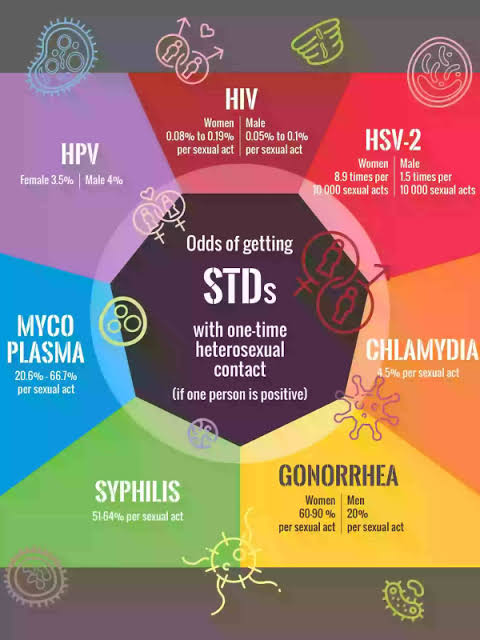Sexually transmitted diseases (STDs), also known as sexually transmitted infections (STIs), are very common.
The eight most common STDs include:
chlamydia, gonorrhea, hepatitis B virus (HBV), herpes simplex virus type 2 (HSV-2), human immunodeficiency virus (HIV), human papilloma virus (HPV), syphilis, and trichomoniasis.
While many of these infections can go undetected because of their lack of symptoms, they can lead to serious health consequences if left untreated.
Because STDs are preventable, significant reductions in new infections are not only possible, they are urgently needed. Prevention can minimize the negative, long-term consequences of STDs, which is why it’s important to take precautions to stay safe – like using condoms or reducing the number of sexual partners.
5 ways to prevent STDs include:
1. Abstinence – The most reliable way to avoid infection is to not have sex.
2. Vaccines – They are safe, effective and recommended ways to prevent Hepatitis B and HPV.
3. Reduce Number of Sex Partners – If you have more than one sex partner, it is imperative that you and your partners tested, and that you share your test results with one another.
4. Mutual Monogamy – Being in a long-term, mutually monogamous relationship with an uninfected partner is one of the most reliable ways to avoid STDs.
5. Use Condoms – Correct and consistent use of the male latex condom is highly effective in reducing STD transmission. Use a condom every time you have anal, vaginal, or oral sex.
Heath: Five Common Ways Of Combating STDs




